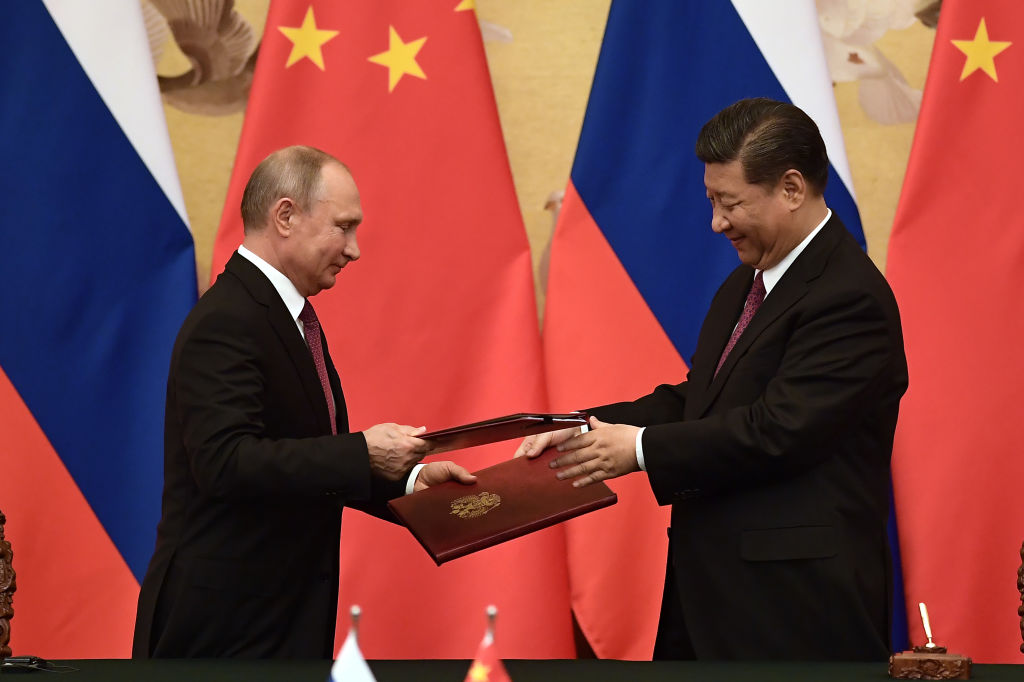Ingram Niblock, Samantha Hoffman and Jake Wallis

A new ASPI report demonstrates that in the early days of Russia’s invasion of Ukraine, social media posts by Chinese diplomats on US-owned platforms almost exclusively blamed the US, NATO and the West for the conflict. Chinese diplomats amplified Russian claims about US biological weapon labs in Ukraine and linked this disinformation narrative with conspiracy theories about the origins of Covid-19. Chinese state media mirrored these narratives while replicating the Kremlin’s language describing the invasion as a ‘special military operation’. As Western governments collectively encouraged Silicon Valley to restrict the reach of Russia’s disinformation ecosystem, China’s propaganda system quickly became an alternate vehicle for the Kremlin’s false narratives.
The information campaigns of the People’s Republic of China are designed to reinforce efforts to shape its operating environment so that the party-state’s power can be consolidated and expanded, not just domestically but also globally. The PRC information campaign responding to events in Ukraine is not taking place in isolation, but instead is being tied to the party-state’s key strategic interests. Understanding how, and why, this is occurring requires acknowledging deeply rooted threat perceptions that the Chinese Communist Party has long articulated and, more importantly, the strategies through which it attempts to deal with those threats.
The CCP strongly believes that threats to its political power are just as likely, if not more likely, to emerge due to the organisation of ‘hostile forces’ outside the PRC. The party is convinced that outside actors, specifically the US, actively attempt to create instability within China (including economic instability and political instability). In more recent history, ‘colour revolutions’ and ‘jasmine revolutions’ are often cited as examples of incidents in which those alleged efforts have ultimately triggered crises. The data in ASPI’s report demonstrates that the events unfolding in Ukraine are being cited as a further example justifying this threat perception.
The themes that the report identifies on sanctions and ‘anti-China’ disinformation are also tied to the growing number of sanctions, tariffs and export restrictions from the US and other countries, in response to the party’s policies in Hong Kong and Xinjiang, and more broadly its policies and strategies for science and technology security and military–civil fusion. The narrative reinforces the policy drivers behind a number of ongoing PRC efforts, such as the development of China’s Digital Currency Electronic Payment system. Meanwhile, the themes (in apparent collusion with Russia) that we identify suggesting that the US has violated international biological weapons conventions are also being tied to Chinese attempts to deflect responsibility for the country’s early mismanagement of Covid-19. The report’s data suggests that, in terms of its international-facing propaganda, the Russia–Ukraine conflict offers the CCP an opportunity to reassert enduring preoccupations that it perceives as fundamental to its political security.
Chinese diplomats’ persistent criticism of security blocs, NATO expansionism and the US military-industrial complex might equally apply to security relationships in the Indo-Pacific such as AUKUS and the Quad. ASPI has already identified pro-CCP social media networks targeting the Quad and the evolving security architecture in the Indo-Pacific region.
Our sample of data was taken before the Silicon Valley platforms reassessed their measures to limit the reach of Russian disinformation (including via Chinese state media). In the early stage of the conflict, tweets about Ukraine by Chinese diplomats performed better than unrelated content, particularly when the content attacked or blamed the West. PRC foreign ministry spokespeople continue to flirt with fringe alternative media outlets to bridge into Western political discourse framed around anti-imperialism, for example by amplifying claims associating NATO and the Ukrainian government with neo-Nazis.
ASPI found that PRC diplomats and state media calibrated their messaging differently for different regions of the world. This investment in tailored and multi-lingual influence reflects the CCP’s strategy of targeting regions—particularly Africa, South America and Southeast Asia—that have rapidly emerging economies, and often Western colonial histories, for specific attention. Beijing’s alignment with the Kremlin’s propaganda demonstrates how the CCP seeks opportunity from crisis, mobilising in response to perceived threats and using contemporary events as vehicles for the projection of its political power.
For some, this situation has become untenable. Professor and former US diplomat David L. Sloss suggests that the time has come to ban both Russian and Chinese state media from US social media platforms. This position may sound extreme to some given how fundamental freedom of speech is to democracy. Yet authoritarian regimes are exploiting democratic openness in their political warfare campaigns and calibrated strategic responses must be taken to shift this calculus.
No comments:
Post a Comment